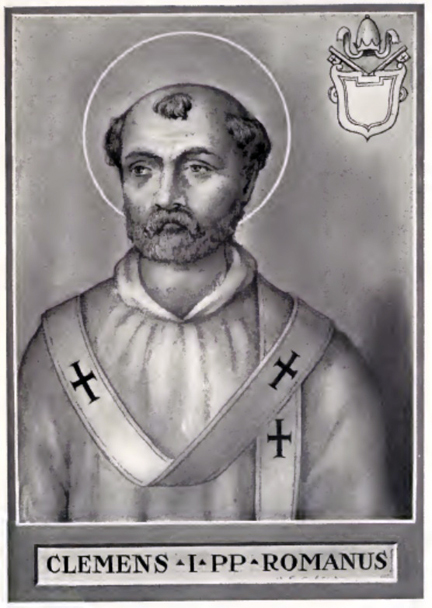An Early Witness on “Going to Heaven”

I remember Garner Ted Armstrong, who believed in what others call “soul sleep,” offering a “$10,000 cashier's check” to anyone who could find in the Bible a reference to “going to heaven” when we die.
Of course, he never surrendered that money, because the Bible nowhere says the words, “We go to heaven when we die,” or anything else equally explicit.
The problem with this challenge is the assumption that every Christian teaching must be stated plainly in the Bible for anyone to simply read and understand and believe. This is a false premise, because
- It is unbiblical (the Bible itself does not teach this standard, making the standard self-contradictory),
- It is unhistorical (Martin Luther invented the “Bible alone” theory in the A.D. 1500s), and
- It is unworkable (it doesn't work in real life).
One could have easily turned the table by asking Garner Ted, “Where does the Bible say we are 'utterly unconscious after death until the resurrection?'” — because the Bible doesn't say that either.
Without going into the biblical implications of “going to heaven” (e.g., Revelation 6:9-11), let me say I was fascinated when I first came across something in the letter of Clement to the Corinthians.
Clement time

Clement was the fourth bishop of Rome (after Peter, Linus, and Anacletus), and wrote this epistle in the A.D. 90s — possibly while the apostle John was still living.
This same Clement was also a coworker of the apostle Paul:
Yes, I ask you also, true companion, help these women, who have labored side by side with me in the gospel together with Clement and the rest of my fellow workers, whose names are in the book of life. (Philippians 4:3)
According to early witnesses, Clement was ordained by the apostle Peter himself.
Where Peter is (and Paul)
In his letter to the church in Corinth, Clement praises them for their virtues, but then chastises them for their envies and strifes. (Not much had changed since Paul's time decades earlier.)
One thing that fascinates me about this letter is to see how Clement and the Christians of his time envisioned the state of the dead.
Here is chapter 5 in its entirety:
But not to dwell upon ancient examples, let us come to the most recent spiritual heroes. Let us take the noble examples furnished in our own generation. Through envy and jealousy the greatest and most righteous pillars [of the church] have been persecuted and put to death. Let us set before our eyes the illustrious apostles. Peter, through unrighteous envy, endured not one or two, but numerous labours; and when he had at length suffered martyrdom, departed to the place of glory due to him. Owing to envy, Paul also obtained the reward of patient endurance, after being seven times thrown into captivity, compelled to flee, and stoned. After preaching both in the east and west, he gained the illustrious reputation due to his faith, having taught righteousness to the whole world, and come to the extreme limit of the west, and suffered martyrdom under the prefects. Thus was he removed from the world, and went into the holy place, having proved himself a striking example of patience.
The way this very early, first-century contemporary of the apostles writes, we don't get the impression that he believes Peter and Paul are utterly unconscious or unaware, stuck in a state of soul sleep until they are stirred awake at the resurrection.
Clement says Peter “departed to the place of glory.” Are we to understand he is referring to the hole in the ground where his body lays?
Clement says Paul “obtained the reward” and “went into the holy place.” Should we think that means a state of nothingness, a deep black sleep, as if administered a general anesthetic?
Resurrection
This does not mean there is no resurrection.
I had always been taught that the understanding of a resurrection contradicts the idea our immortal soul survives bodily death. But not so.
Clement assumes there is no contradiction. While he speaks of the dead going to a “place of glory,” having “obtained the reward,” and having “gone into the holy place,” he also affirms the bodily resurrection.
In chapters 24-26 of his letter, Clement speaks of the resurrection. Here is the last of the three chapters:
Do we then deem it any great and wonderful thing for the Maker of all things to raise up again those that have piously served Him in the assurance of a good faith, when even by a bird He shows us the mightiness of His power to fulfil His promise? For [the Scripture] says in a certain place, You shall raise me up, and I shall confess unto You; and again, I laid me down, and slept; I awoke, because You are with me; and again, Job says, You shall raise up this flesh of mine, which has suffered all these things. Job 19:25-26
Putting it together
It's clear to me that Clement and the early Christians believed just as the Church today believes: that at death, our spiritual soul separates from the body and remains conscious, facing its eternal fate. Meanwhile, the body decays and turns to dust. But at the resurrection, when Jesus returns, our body will rise from the dust and be reunited with our soul. Put together again, we will no longer be disembodied souls (as if ghosts). We will be reintegrated, body and soul, as whole human persons — the way God created us to be.
If we are judged to be unrepentant sinners, then hell is our reward for both body and soul.
But if we are judged to be “in Christ” at the time of our deaths, then, body and soul, we will be glorified and never again see death. We will have truly “obtained the reward.”
THANK YOU for reading. To see my “About Me” page, to learn how to subscribe to this blog's RSS feed, and to privately send me questions or comments, click or tap here.
To see a list of all blog post titles from this blog, replace the URL of this site with https://tiny.write.as/thecogcatholic/.
PUBLIC COMMENTS: I'm now cross-posting this blog on nostr so you can leave public comments and interact with or without an account. (You can create an account with any nostr client.)
SOCIAL MEDIA: Follow me here on the Nostr Network, the censorship-resistant social media protocol. Or, go to any nostr client (e.g., Amethyst on Android, Damus on iOS, snort.social on Web, etc.) and search my public key:
npub1f3e4cqqewe3wx5q3h72mlmh3k28yzyvpxz753pl98ul9w0a5u0vss98zls